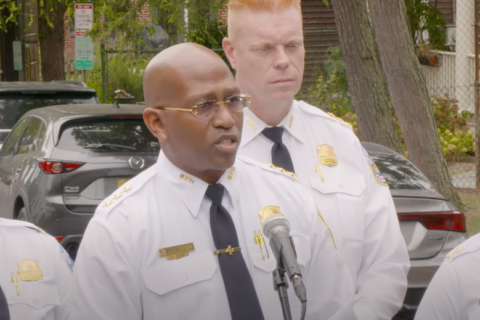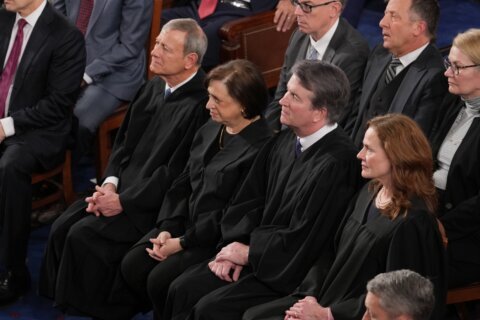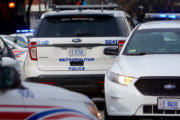WASHINGTON — Tattoo artists in the District of Columbia are upset about new regulations proposed by the Department of Health, which some fear will make their businesses illegal.
“The D.C. Department of Health is trying to marginalize the tattooed,” said Paul Roe, owner of BritishInk, in Northeast Washington.
Roe is speaking out against proposed regulations which include a provision that would require any tattoo shop in the city to buy all equipment and supplies from companies that are registered in the District. He said right now there are no companies registered in the District, and he questions where shops will get their supplies if the measures are adopted.
“What is being requested here is unheard of in any other jurisdiction or state in the whole country,” said Matt Jessup, better known as “Fatty,” owner of Fatty’s Tattoos and Piercings in D.C.
Since 2013, the city has tried to enact regulations on an industry which has gone unregulated for many years. Among the rules in the first draft is a 24-hour waiting period for customers looking to receive a tattoo. Public reaction led the city to back down. This is the third attempt to pass rules governing the city’s tattoo and piercing industry.
“Having 60 pages of micromanaging regulations that go well above and beyond what is required don’t make sense,” Jessup said.
Mayor Muriel Bowser’s office said the proposed rules will allow the District of Columbia to protect the public’s health and safety in body-art establishments. In a statement, Bowser’s office said the Department of Health has been working with practitioners for several months, including with the Body Artist Regulations Core Workgroup, which the statement said consisted of two tattoo artists and a member of the public.
“We have engaged with these bodies on the development and amendments of the regulations in order to ensure that they are fair, balanced and comprehensive,” the statement said.
Jessup disagrees, saying he feels the suggestions he has made to the city have fallen on deaf ears.
“What those two sole members are saying aren’t necessarily the consensus of the wider body-art community,” Jessup said.
Both Roe and Jessup say they’re not against regulations for the industry, but both would like to see the city receive more input from tattoo artists before rewriting the rules. An online petition has also been started, urging the same.
Roe said tattoo shops are the safest place to get a tattoo. He said his and other shops implement industry standards including the use of single-use needles and pigments. The guidelines also involve aftercare instructions for individuals who receive a tattoo.
“This is 2015 — there is no reason why we should be arguing with the health department; we should be working in tandem,” Roe said.
Roe said when it comes to body modification, in the District, the biggest concern falls on hobbyists and amateur tattoo artists who give tattoos in a home.
“Inside of an established professional shop, there are no health risks,” Roe said.
Jessup agrees, and said the D.C. body-art industry has a perfect track record when it comes to safety.
The public can weigh in on the proposed regulations until Nov. 16. Then the DOH will decide whether to move forward with them.








